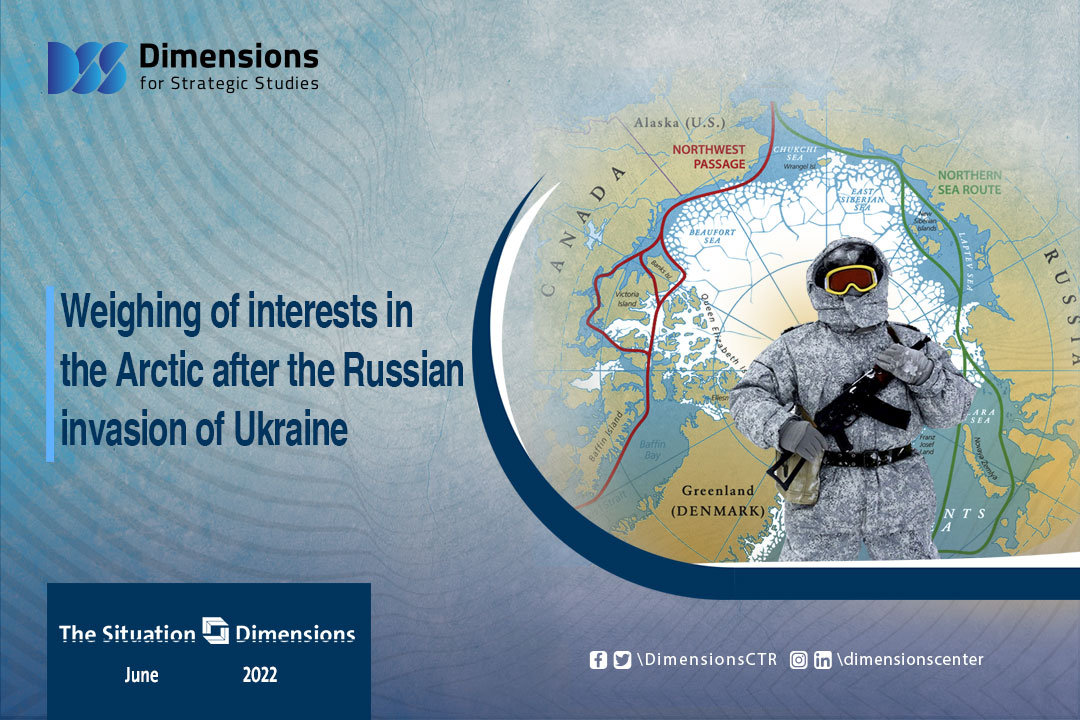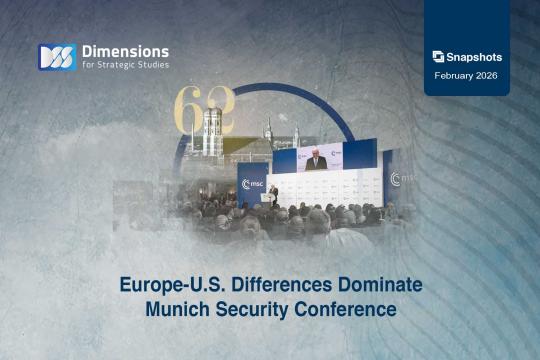
Weighing of interests in the Arctic after the Russian invasion of Ukraine
2022-06-172085 view
On March 3, 2022, Canada, the Kingdom of Denmark, Finland, Iceland, Norway, Sweden and the United States issued a statement condemning Russia's unjustified invasion of Ukraine, and noted the grave impediments to international cooperation, caused by Russia and affected the Arctic .
This very statement and its reference to the Arctic is of particular significance; becasue the signatories to it are the other Arctic Council founding states beside Russia. The institution is concerned with managing and protecting the capabilities of the Arctic.
Russia is the current chair of the Arctic Council (2021-23). The comprehensive program of the Russian chairmanship includes multilateral cooperation in the areas of environmental and climate protection, economic development and support for the indigenous peoples of the Arctic. The Russian chairmanship will also raise the level of coordination among the members of the Council.
The joint statement issued by the member states referred to the undeclared power struggle in the Arctic region. Such a suggestion could be understood by reviewing the interests and positions of the countries concerned with the Arctic, both members and non-members of the Council, as follows:
1. Russia has responded with a preemptive measure to any possible military or security actitities that might raise on the way to the Arctic from the Bering Sea. Russia announced in late March that it was suspending talks with Japan over the disputed and Russian-occupied Kuril Islands, streatching between the Bering Sea and the Sea of Okhotsk.
2. China considers itself entitled to participate in the management of the Arctic. in 2019, China proposed to Moscow a vision for cooperation to invest in Arctic resources in the name of "ice and snow economy". According to the White Paper issued by China in 2018, China's "Belt and Road" initiative will provide opportunities for relevant parties to participate in building the "Polar Silk Road" and facilitate communication and sustainable economic and social development of the Arctic.
3. The United States has given priotitiy to the Arctic file since the era of former President Donald Trump, who proposed Denmark in 2019 to buy the polar island of Greenland, in order to increase American hegemony over the territorial waters in the Arctic and to prevent China and Russia from having any access to the (Arctic circle), which divides the Earth into Eastern and Western hemispheres
In November 2021, the Biden administration announced major recedures to protect and promote U.S. interests in the Arctic by reactivating an important steering committee. The purpose of that committee was to consolidate the preesent administration's presedures which are based on science to tackle climate change, and strngthen national and American economic security. That is in addition to coordination with indigenous peoples in the region in particualr.
4. With regard to Canada, in 2019, it announced the launch of a strategy to deal with the Arctic, extending until 2030, and focusing on the developing and enhancing the Canadian Arctic regions and their surroundings.
5. As for the considerations of Iceland, Sweden, Denmark and Norway, with the outbreak of the Ukrainian issue, these countries have become more concerned about the hypothesis of Russia's use of the Arctic Corridor as a threat to these states' security, from the Kara Sea, passing through the Barents Sea to the Norwegian Sea. Therefore, Sweden headed towards joining NATO, to strengthen deterrence and defense capabilities. This is likely to lead to the deployment of naval deterrent forces off the coast of the Barents Sea near Sweden and overlooking Norway.
As a result, security reconnaissance operations for each of the countries concerned with the Arctic file, are likely to increase after the Russian invasion of Ukraine.
It is possible that the strategic calculations - especially of China, the United States and Russia - have become more urgent to deal with the Arctic issue differently. This explains why the Arctic Council countries, as soon as the Russian invasion of Ukraine started, suspended cooperation activities with Moscow regarding the Arctic.
Parallel to that, however, there are several scenarios that characterize the nature of new alliances that might emerge based on interests in the Arctic, like a “Chinese-Russian” alliance, or the isolation of Russia from the Arctic Council, or the formation of a Scandinavian alliance in cooperation with Canada away from the United States to avoid provoking Russia and China.





